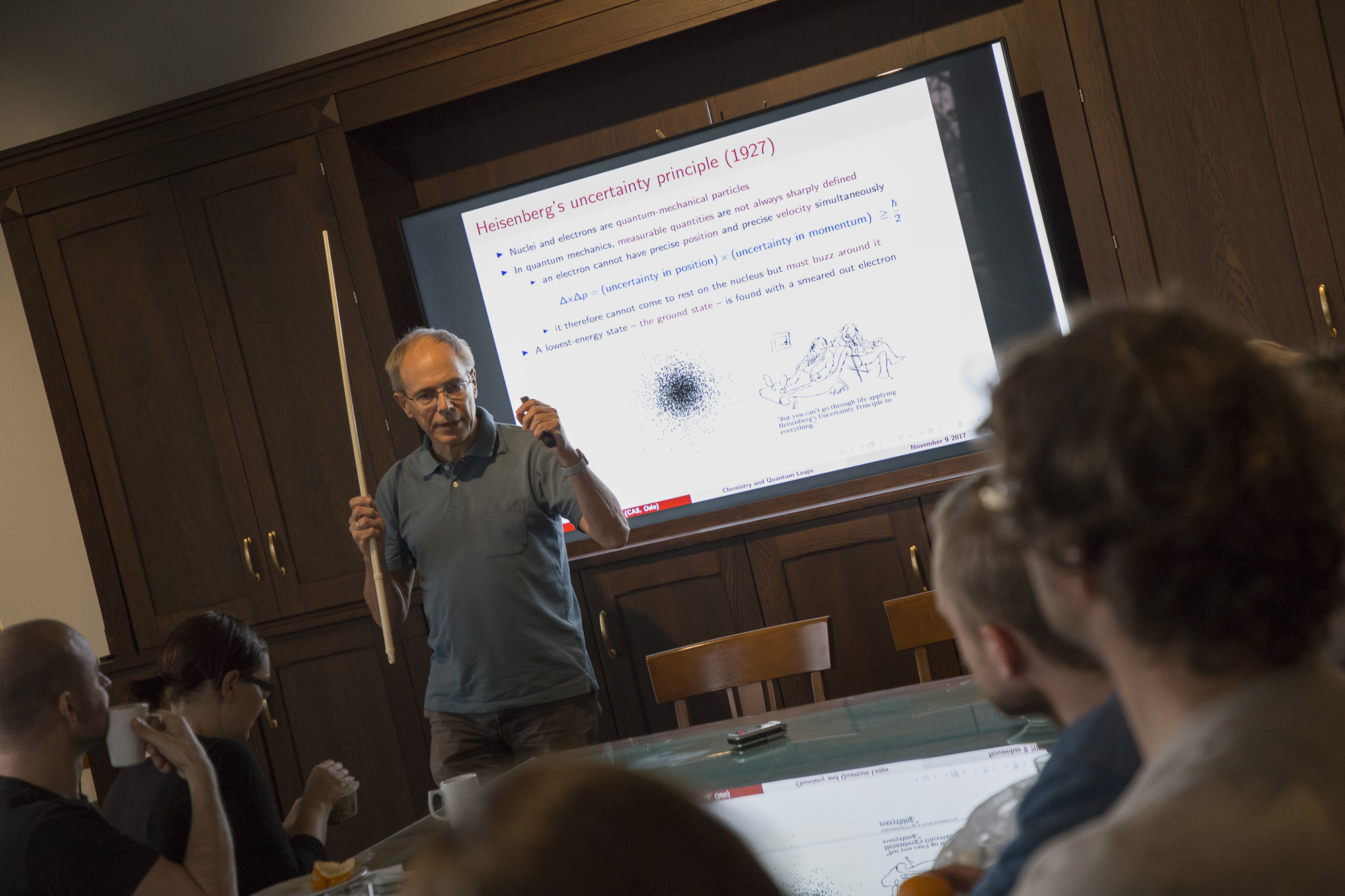Project Update: 'Molecules in Extreme Environments'

Following a well-deserved winter break, fellows are returning to CAS to continue their research.
We checked in with the members of the project Molecules in Extreme Environments to learn how their work is going, their thoughts on the stay so far, and their plans for the spring.
Here’s a recap: Molecules in Extreme Environment brings together leading scholars in theoretical chemistry and physics to explore how atoms and molecules behave when exposed to conditions not found on Earth -- strong magnetic fields and intense pressure, for example. The project is led by Trygve Ulf Helgaker, professor of theoretical chemistry at the University of Oslo (UiO).
The fellows said they spent much of the fall learning about one another’s areas of expertise and finding opportunities for cooperation in pursuit of new knowledge.
Helgaker, for example, has spent years researching the effects of strong magnetic fields, while some of the scholars from Massey University in Auckland, New Zealand, have experience studying how elements behave under conditions of extreme pressure. Others yet are experts in molecular calculations.
Looking ahead to the spring, Helgaker identified two main research topics of interest. First of all, he said, the group will further explore how atoms and molecules behave when subjected to multiple extreme conditions.
‘What we’re interested in is combining both high pressure and magnetic fields,’ Helgaker said. ‘How does that change things? Will something unexpected happen? It’s hard to say.’
One thing is certain, however: ‘The chemistry changes,’ Helgaker said. ‘Normal textbook chemistry doesn't cut it anymore.’
The group will also conduct more research on how magnetic fields affect the amount of energy a system needs to move between states (also known as the excitation energy), Helgaker said. Specifically, the group is focusing on hydrogen molecules.
‘What happens to excitation energy in strong magnetic fields is uncharted territory,’ Helgaker said. ‘The order of the states changes. What is normally a charged state could become the ground state.’
Be sure to read up on all our coverage of Molecules in Extreme Environments, and keep an eye on our website for events featuring scholars from the project.
Here’s how other fellows summarised their time at CAS so far:
'I’ve come to see the stay at CAS as life in a bubble. What I’ve tried to do is clear my agenda to give myself plenty of space to focus on a few things. That means I’ve chosen to work on something relatively ambitious. It’s not like I’ll be publishing scholarly journal articles every week. It’s a longer-term, in-depth investment. Often you don’t have the time or the opportunity to do such a deep dive. That’s what I’m trying to devote my year to.'
'I am absolutely thrilled and happy to be here in Oslo. Trygve [Helgaker] is probably the most well-known theoretical chemist in the world. For us to be here enjoying his company means something, you know? We all come together, exchange ideas and have discussions. Of course you only have one year’s time. It would be nice if the CAS project would go for two or three years.'
'I really like the atmosphere. It’s really nice to have so many experts just sitting next door. You can just discuss things with people directly and come up with new ideas. We have many meetings. There’s lots of input. The ‘problem’ in the fall was we had so many discussions that there was not that much time to do the actual work. On the other hand, that’s a good thing, because then we have ideas for many things we can try out.'
'The opportunity of being in one project with so many world leading specialists is just amazing. For me personally, this is a really wonderful opportunity. Even though the CAS project will soon be over, the collaboration will still go on.'
By Carl Fredrik Schou Straumsheim